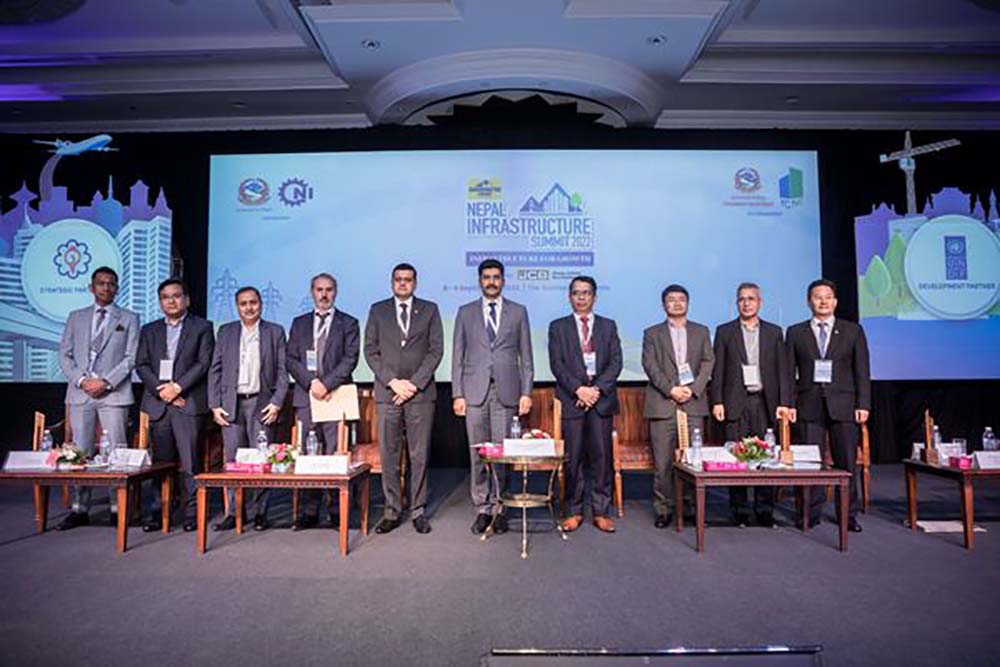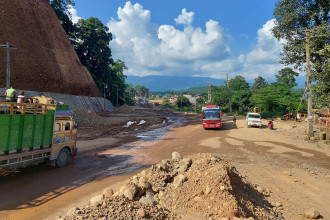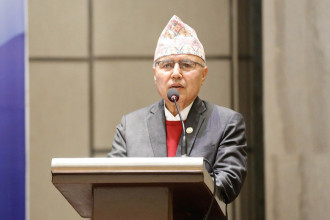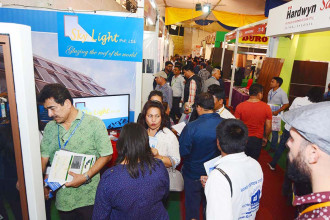
KATHMANDU: Experts who participated in the fourth Nepal Infrastructure Summit jointly organised by Confederation of Nepalese Industries (CNI) and the Ministry of Physical Infrastructure and Transport (MoPIT), said that investment in infrastructure would contribute to poverty alleviation, job creation and gross domestic product (GDP).
Taking part in the session titled, 'Good Governance in Infrastructure Development: Policy, Strategy and Implementation' on Friday, experts in the infrastructure sector, construction professionals, representatives of the MoPIT, Asian Development Bank and others pointed out the lack of investment in infrastructure in Nepal and suggested that 40% of the total annual budget should be allocated for capital expenditure.
Professor Dr Rajendra Prasad Adhikari presented a working paper on the problems and solutions in the infrastructure sector of Nepal. Adhikari said the effective implementation of projects does not take place in Nepal due to the problem in project selection, preliminary preparation and budget formulation.
He said that we should pay attention to the economy while making plans and policies related to infrastructure. He emphasized that the development of infrastructure should contribute to the GDP as well as to employment and poverty alleviation.
Adhikari opined that in order to achieve sustainable development goals (SDGs) formulated by the National Planning Commission, budget expenditure equal to Rs 2 to 2.5 trillion should be planned annually. Although 40% of the total budget should be allocated to the capital budget every year to achieve the infrastructure development goals formulated by the 15th plan, only 25% has been allocated, he said.
MoPIT Secretary Gopal Prasad Sigdel said it is necessary to analyse whether the project selected is based on demand or not and whether appropriate project has been selected. During the feasibility study of the project, this issue should be analysed. He also expressed his views that national priority projects have not been able to move forward due to the obligation to implement projects that are beyond the capacity of public.
To solve the problem, the ministry is preparing technology-based monitoring and evaluation, and institutional automation, and also making arrangement to check the procurement process carried out without full preparation of the project, and the National Highway Act are being prepared, according to Sigdel.
Sushil Bhatta, chief executive officer of the Investment Board Nepal, said that Nepal has advanced many policy reforms in infrastructure developmen since the 14th plan was started. He said that hydropower projects of over 900 megawatts like Arun III and Upper Karnali have already been completed. Further, he said the Investment Board has approved the projects worth more than Rs 300 billion and are under construction.
Senior Vice President of the Federation of Contractors' Associations of Nepal (FCAN), Ang Dorji Lama, said that the biggest problem in Nepal's infrastructure development is low bidding. He said that the failure to complete the project in time is not the fault of the builders alone.
He said the government's step to reduce 10% in mobilisation expenditure by revising the public procurement regulations has negative impact on the construction sector. He emphasized the formation of a separate regulatory body to regulate infrastructure development in Nepal.
Nepal Engineers' Association President Hari Bahadur Darlami said that the government should play a role in developing the capacity building of engineers as they play an important role in infrastructure development.
Arnaud Cauchois, Asian Development Bank (ADB) Country Director for Nepal, said that there are legal and institutional problems in Nepal's infrastructure and project implementation, which should be rectified. He pointed out that environmental impact assessment, land acquisition, tree cutting, local obstacles, public procurement process, problems at the project site, lack of resources after project implementation, and several other factors were hindering the advancement of projects in Nepal.
Cauchois suggested that Nepal should also pay attention to the selection of international contractor companies.
Likewise, taking part in the session, Renan Banerjee, PwC India Partner, Alliances & Ecosystems Leader, opined that attention should be paid to the completion of project rather than its inauguration.
READ ALSO:
- Ministry is willing to invest in startups' ideas with complete solution, says Infrastructure Secy
- Nepal Infrastructure Summit: Green infrastructures have high potential for investment
- CNI organises plenary session of Nepal Infrastructure Summit 2022
- Experts emphasize production of skilled manpower in IT field
- ‘Regional air connectivity, energy, tourism sectors have potential for economic empowerment’
- Experts stress policy reform to bring private investment to infrastructure development
Published Date: September 10, 2022, 12:00 am
Post Comment
E-Magazine
RELATED B360 National





